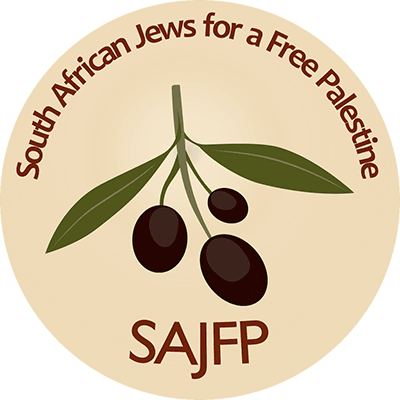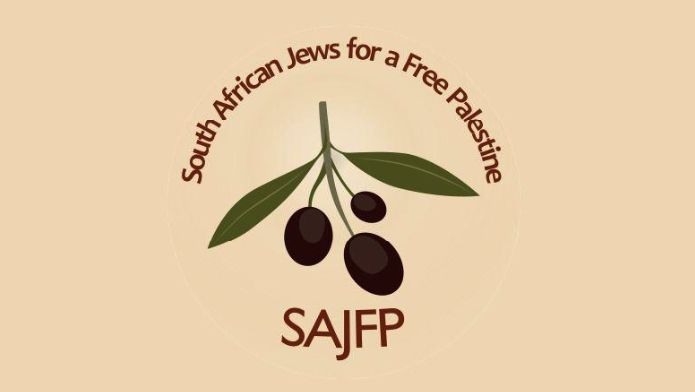Tim Flack, a regular contributor to Zionist publications, and not averse to misrepresenting Palestinian advocacy, recently sprang to the defence of ‘South Africa’s Jewish community’. He declared that the Pesach decorations in Norwood Pick n Pay were symbols of Judaism and had nothing to do with Israel. He then went on to educate us all on the meaning of the Magen David, the specific colour of blue that was used and the basic principles of commerce. Does he expect us Jews to feel grateful for his intervention?
Well, he missed a key fact – some of us were participating in the protest. And we were there because we were uncomfortable with the decorations and because we were unhappy about the fact that Norwood Hypermarket continues to stock products made in Israel. In fact, it stocks products made in the occupied territories despite this being illegal in terms of the International Court of Justice ruling of July 2024.
Mr Flack is correct in saying that the Magen David precedes the state of Israel. It is also the case that the swastika preceded the Nazis. That is the thing with symbols – their meaning can evolve and even be misappropriated over time. Also, their meaning depends on context such that what ‘we’ now describe as a swastika on a Hindu temple carries an entirely different meaning to an actual swastika tattoo on the bicep of a Western skinhead carrying a copy of Mein Kampf. The Magen David being branded on the faces of Palestinians has nothing to do with our spiritual tradition and everything to do with brutality, nationalism, domination and violence. The same can be said of the Magen Davids being carved into the decimated ground of Gaza. So when Magen Davids identical in colour, scale and font to the one on the Israeli flag are suspended between blue and white banners, identical to the ones on the Israeli flag, the meaning is very obvious to anyone who cares.
Tim Flack is very proud to show off his knowledge of tekhelet, the exact shade of blue which, he is right to say, ‘holds spiritual meaning in Judaism’. He further writes ‘I won’t waste time unpacking its significance here, because frankly, most of the protestors wouldn’t care to understand.’ About this he is wrong – the protestors do understand. We understand that Israel has endeavoured to co-opt the symbols of Judaism – and we resent it having done so. We resent the fact that a colour associated with the sky, the sea and the divine throne, in our spiritual tradition, is now inexorably tainted with the blood of Israel’s crimes.
Mr Flack misses something else: we are now celebrating Passover, that is, our escape from a land of bondage. Currently we are deeply mindful of the wrongs of subjugation and tyranny. On the first night of seder we literally taste salt water to remember the tears of our ancestors – we eat bitter herb to remember the sheer misery of oppression. We do not blithely hum away as we scan the supermarket shelves for matzah – instead we remember what it is like to have to suddenly flee – without time to let our bread rise – to have to grab what we can and go. We remember what it is like to be a refugee.
It is beyond fatuous to argue that the decorations in Pick n’ Pay did not symbolise the State of Israel. And only the most morally obtuse among us could insist that stocking products from the occupied territories is simply to obey the laws of commerce. What is most awful about Mr Flack’s article, however, is the way it pretends to care about human beings.
‘No child shopping for Passover food with their parents should be confronted by strangers yelling about genocide.’ Indeed, his concern for well-dressed, well-fed, secure children is markedly in contrast to his evident disdain for Palestinian ones. Perhaps he would prefer his own offspring not to know about the 17 000 children that have so far been killed in Gaza? About the tens of thousands of children who have amputated limbs? About the 39 000 children who have lost one or both parents?
Passover for Jews, however, should be about asking questions, being informed and pursuing justice. Those of us protesting raise our children to be socially aware – and above all – to care. We want our children to know that a genocide is taking place and that it is their responsibility as human beings to oppose it – especially when done in our names.

